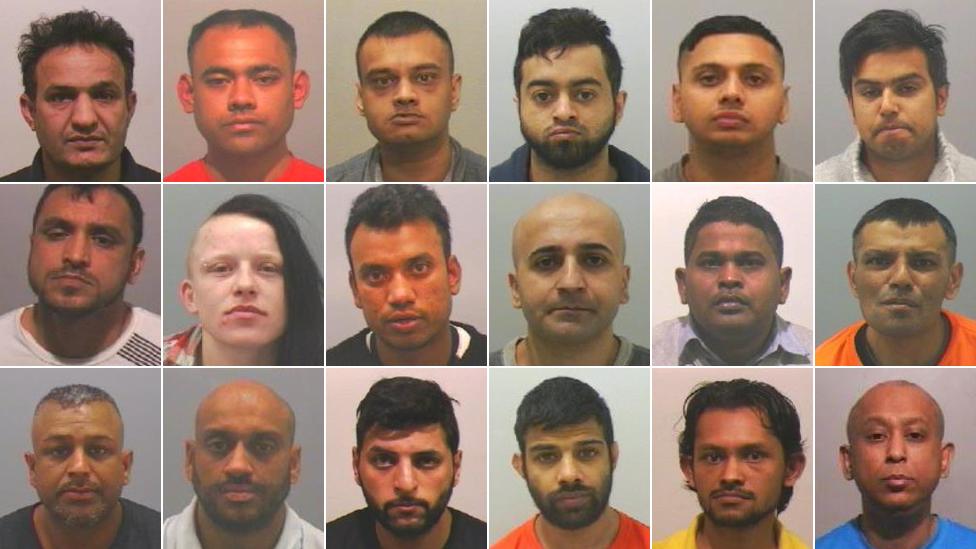Operation Shelter: Police paid £10,000 to child rapist
- Published
Northumbria Police paid £10,000 to child rapist
A police force paid a child rapist more than £10,000 for help during an investigation, it has emerged.
The conviction of a Tyneside grooming gang is the culmination of Operation Shelter - itself part of Operation Sanctuary, a long-running Northumbria Police investigation into the abuse of vulnerable girls and young women.
It has now emerged that during the course of the inquiry the force paid the convicted rapist - known as XY as he cannot be named for legal reasons - to act as an informant.
XY fell out with his police handler, making a series of damning allegations, including claims he had been told to plant drugs and take vulnerable girls to parties.
This led to a challenge to the court process, with the defence arguing his allegations fatally undermined the police case.
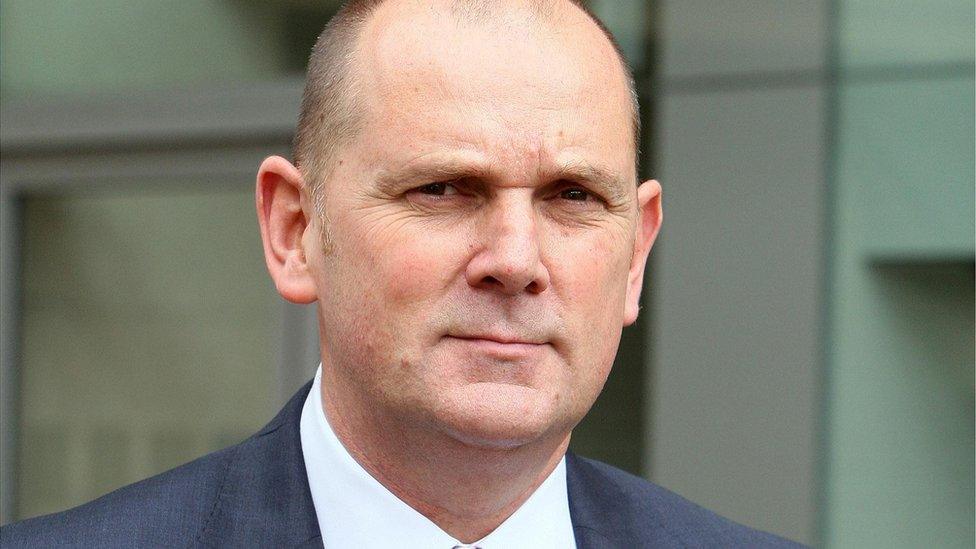
The use of XY was condemned by Jim Gamble, who set up a government taskforce
However, the use of the informant has been defended by the force.
Chief Constable Steve Ashman said: "We have to deal with people who themselves are guilty of some of the most vile offences imaginable.
"Quite often these people can't be trusted, but the potential prize is that you just might get a piece of information, intelligence possibly, even evidence, that might just lead you to a successful conviction and you put bad people behind bars."
BBC's Inside Out programme has learned the informant was known to some of the defendants.

Abuse survivor Sammy Woodhouse described the payment to XY as a "kick in the teeth"
XY had a total of 53 convictions, and had previously been jailed for seven years for attacking a 15-year-old girl, whom he plied with drink and drugs and gang raped with two of his friends.
While working for Operation Sanctuary, he was arrested for dishonesty, an assault in a mosque, and was questioned about making sexual advances to a 13-year-old girl.
So what did XY's role as an informer involve?
During a special court hearing in October, brought by the defence in a bid to have the cases dropped, XY said:
"I was told, 'This is an operation about Asian grooming gangs. This is what we are after. These are the people we are interested in'.
"I had to find out what was going on… where the parties were taking place.
"These parties I went to, one or two, I got information about parties, when they were happening, and I would ring it in."
'Hurt and pain'
While it is not unusual for informants to have criminal records, one senior ex-policeman has expressed concern over the use of XY.
Jim Gamble, who set up the government's taskforce to fight child sexual exploitation, said: "I think all police forces are under pressure to get things right. But there are ways and means to doing it... there need to be limits and there should be lines that shouldn't be crossed.
"In my opinion they have gone way over the line on this one.
"Personally, I can't envisage any circumstances where I would have authorised payment to someone convicted of rape.
"I can't imagine how you could have control mechanisms in place with an informant of that type... that would give you reassurance that they didn't still represent a risk to young and vulnerable women, given what I know about this person's history."
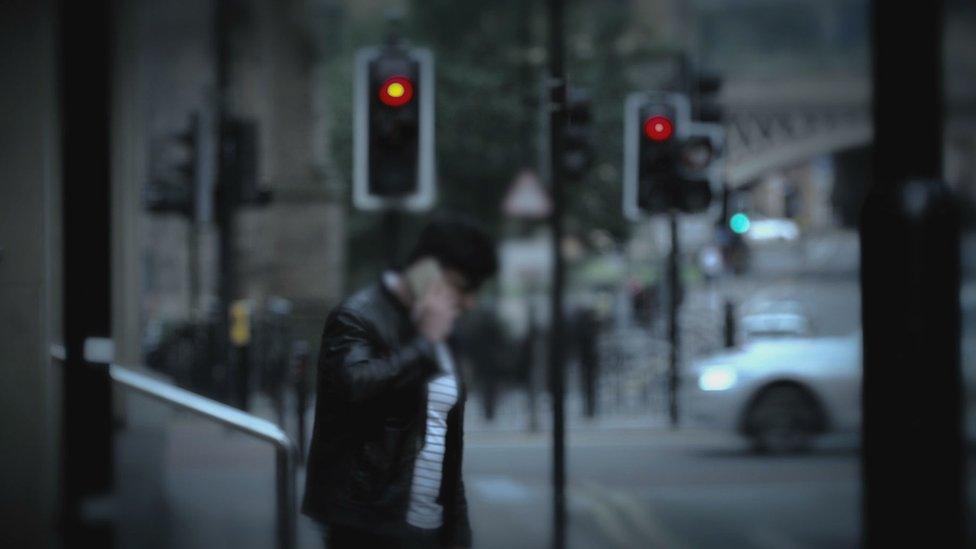
BBC Inside Out had exclusive access to a secret transcript of XY's interview
XY's payment of £10,300 has attracted criticism.
Sammy Woodhouse, who was 14 when she was abused by a grooming gang in Rotherham, now advises police forces on how to tackle grooming.
She said: "I think it's absolutely outrageous. If I were in [his rape victim's] situation I'd be absolutely disgusted by it.
"For me that would be a real kick in the teeth and I'd think 'this is a man that could have destroyed my life, that fetched me so much hurt and pain, and he's been rewarded for that'."
By the summer of 2015 police were ready to bring their case to court, dividing 20 defendants between four trials.
The first - in September 2015 - led to six convictions, but by the following March, XY had fallen out with his police handler and was threatening to go to the press.
BBC Inside Out had access to a secret transcript of XY's interview with the National Crime Agency, which was called in to investigate his allegations.
In it, he claimed he was tasked by his handler to plant drugs at the homes of those eventually convicted, and was even told to take vulnerable girls to parties.
XY said: "He asked me at one point go pick one up and bring her to the house and bring some drugs with you… so I'd go and pick up these lasses, take them to the party, leave the drugs on the table."
'Out of control'
With other trials about to take place, defence lawyers argued that XY's claims so discredited the police case it was fatally flawed, and these trials should be abandoned.
This led to an Abuse of Process hearing, held in October 2016.
The BBC successfully argued against a prosecution attempt to bar the media from the hearing, which was in front of the judge who had presided over the first trial, and who was due to preside over the next three.
Defence lawyer David Comb said: "This is a case where a rapist was put into the field, where he was with vulnerable young women when intoxicated... there were 30 occasions where it was disclosed by XY that he had been at parties.
"The police were happy for him to be going to parties, taking drugs, being out of control, because of the high value of information. That is an affront to the public conscience."
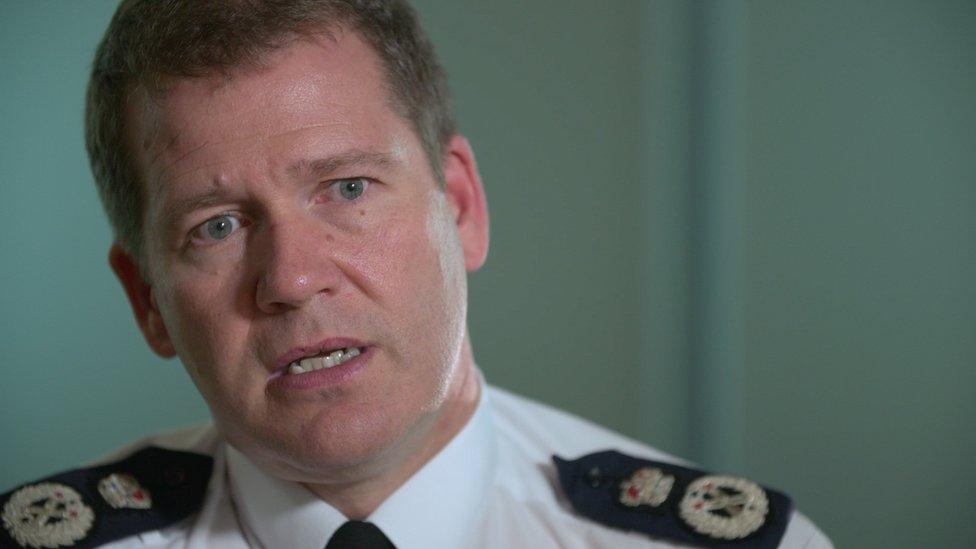
Chief Constable Steve Ashman defended the use of XY, saying he would do "exactly the same thing again"
XY - who by now had been moved, along with his family, out of the area and was under round-the-clock police protection - was called to court and gave his evidence from behind a screen.
He was questioned on what police had asked him to do, and blamed his many inconsistencies on the pressure of working as an informant.
"You have to remember that I've been through a lot. It's impossible to remember what's true and what's not. You've put me through this," he said.
"If I got shot or died it would have been easier for my wife."
At the Abuse of Process hearing, Judge Penny Moreland dismissed all of XY's allegations against the police, saying he was "wholly unworthy of belief" and rejected the defence's attempt to halt the trials.
She also said it was not her job to rule on the police's decision to employ him.
Judge Moreland said: "In effect I'm being asked to substitute my judgment about the kind of person who should be used as an informant, for the judgment of the officers whose work this is. That I decline to do."
'Right thing to do'
Mr Ashman said he was content that dangerous men had been put behind bars and that he would do "exactly the same thing again".
"In some cases we have actually saved lives on the back of information that we have gained, and am I going to take that risk again? You're damn right I'm going to.
"It's inside the law, inside accepted policy and practice. I get that people might be quite shocked by it, but actually this is the right thing to do."
The force's handling of XY has been referred to the Independent Police Complaints Commission, and its investigations have now established no findings of misconduct.
Reporting by Dan Farthing, Jacqui Hodgson and Catherine Lee
You can see more on this story on Inside Out on BBC One in the North East and Cumbria at 19:30 BST and on the BBC News Channel at 20.30 BST

Newcastle City Council is carrying out a serious case review as one of the victims was in care
- Published8 August 2017
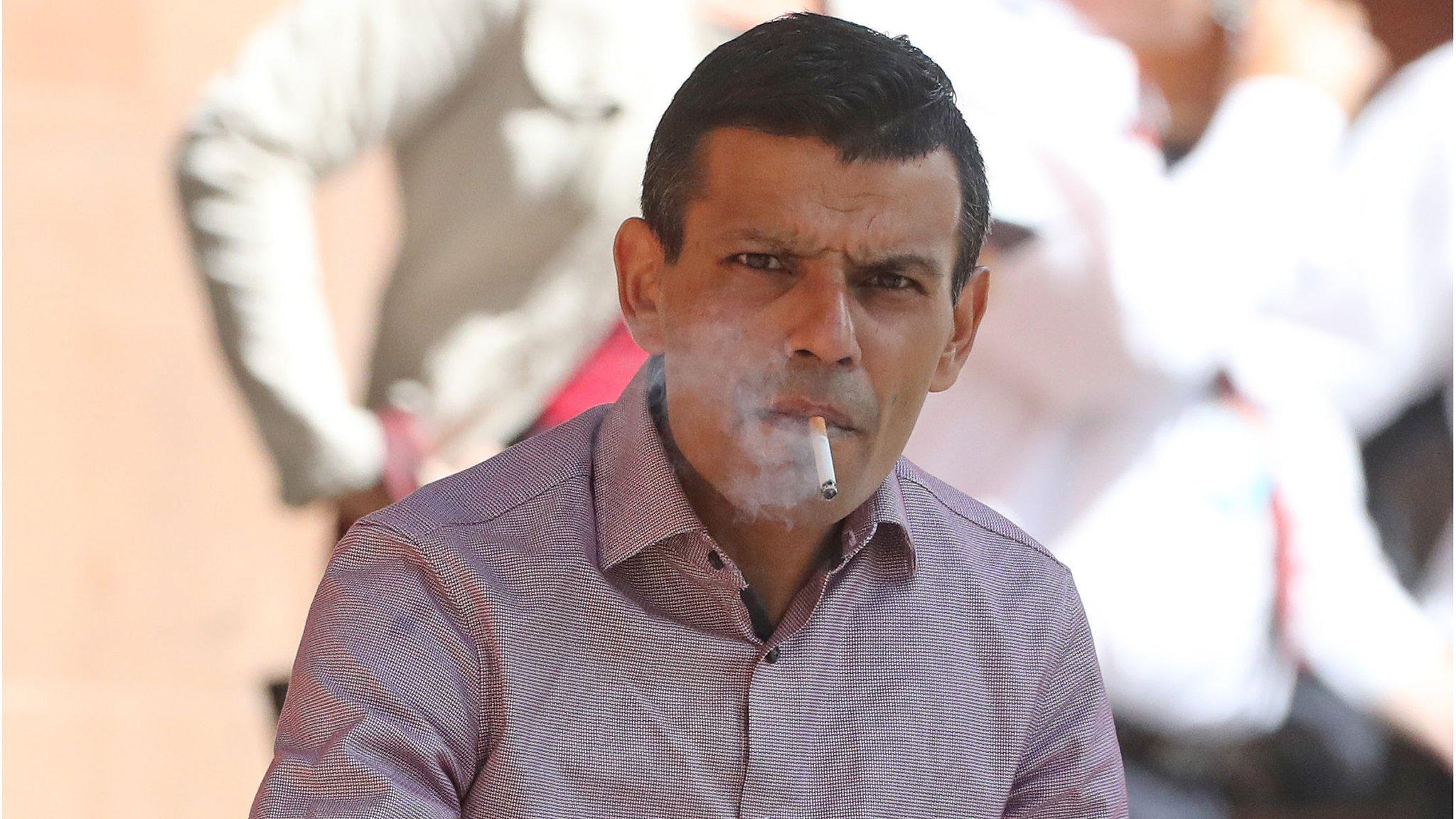
- Published9 August 2017
